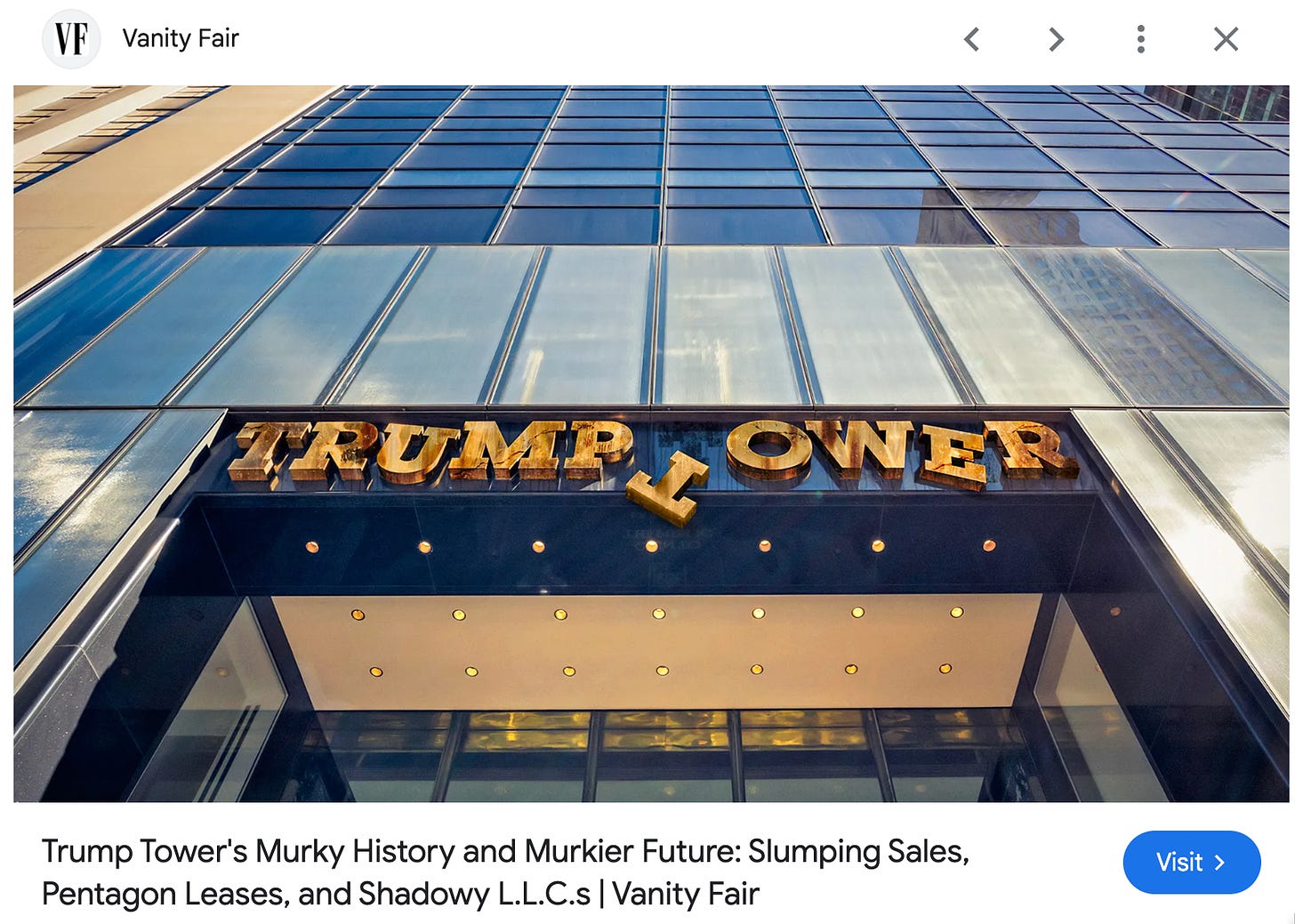Making Sense of the Career of Donald Trump as Real-Estate Celebrity Developer-Mogul
I owe the formerly-Manchester Guardian a 950-word review of Russ Buettner and Susanne Craig’s new book Lucky Loser: How Donald Trump Squandered His Father’s Fortune and Created the Illusion of Success. Needless to say, I cannot send them this: it is 3,700 words. Personally, I blame the caffeine: having done a cold-turkey caffeinated-coffee detox since late July, I started drinking one shot of caffeinated espresso a day starting last Wednesday…
Buettner, Russ, & Susanne Craig. 2024. Lucky Loser: How Donald Trump Squandered His Father’s Fortune & Created the Illusion of Success. New York: Penguin Press. URL: <https://www.penguinrandomhouse.com/books/697896/lucky-loser-by-russ-buettner-and-susanne-craig/>.
The renovation of the former Commodore Hotel into the Grand Hyatt New York at 109 E. 42nd St. (Lexington Ave.) in the late 1970s, the construction of Trump Tower at 721 Fifth Ave. (56th St.), and Donald Trump’s career as a New York celebrity-real estate developer mogul was well-launched. Supporting the launching of his career, from the mid–1970s through mid–1990s, $500 million of his father Fred Trump’s money was transferred to him. That career is what Russ Buettner and Susanne Craig chronicle in their book Lucky Loser: How Donald Trump Squandered His Father’s Fortune and Created the Illusion of Success.
Read the book’s title, and four questions jump out:
“Loser”—What makes Trump a loser?
“Squandered… [a] fortune”—How, exactly, can Buettner and Craig say that a probable current billionaire has in any sense squandered his wealth?
“Lucky”—What, nevertheless, makes Trump lucky?
“Illusion of success”—What do Buettner and Craig (or, more likely, Penguin’s marketing and editorial staff) mean by saying that Trump’s successes at winning the societal games of celebrity and wealth are an illusion?
My grokking of the story Buettner and Craig tell is, in a nutshell, this:
Had Trump simply taken his inheritance and been a passive investor in Manhattan real estate, he would on winning the presidency in 2017 been worth $240 billion, rather than the $2.5 billion Forbes pegs him at. His active engagement in his real estate-development business lit 99% of his potential passive-investor wealth on fire, and burned it up.
To squander to such a degree the fortune you had inherited, rather than husbanding and growing it, those are the actions of a loser of truly gargantuan proportions.
You would expect someone who has shown such horrible business judgment over such a long time relative to passive-investor returns to have gone spectacularly and irrevocably bankrupt several times by now: that Trump has not is indeed the result of his being absolutely fabuloulys lucky—in the counterparties he has attracted, in their complaisance with respect to his shenanigans, with respect to things breaking his way at many crucial junctures in which he ought to have sunk himself, and, most important, in the fact that his Manhattan real-estate stomping ground experienced the greatest sustained boom ever over the course of his career as a real-estate celebrity developer-mogul.
While Buettner and Craig’s subtitle judges his success as an illusion, I have to disagree very strongly: his career shows, plainly, that he is an enormous and very real success along several dimensions—although few philosophers would judge it as a kind of success worth having, and many of us hope for his story to end with a proper comeuppance, in which Trump’s galaxy-scale hubris does indeed call forth a satisfying nemesis.

